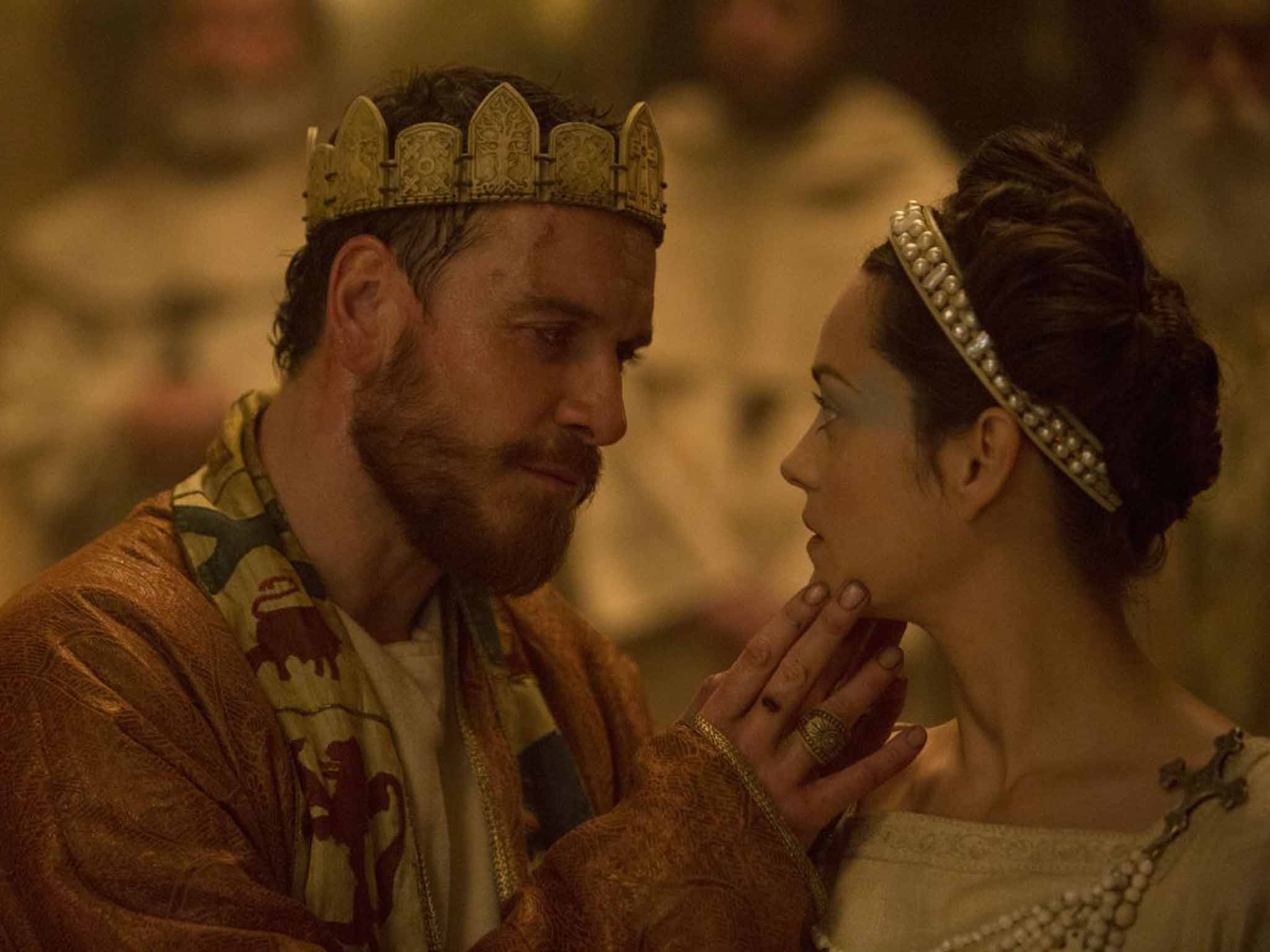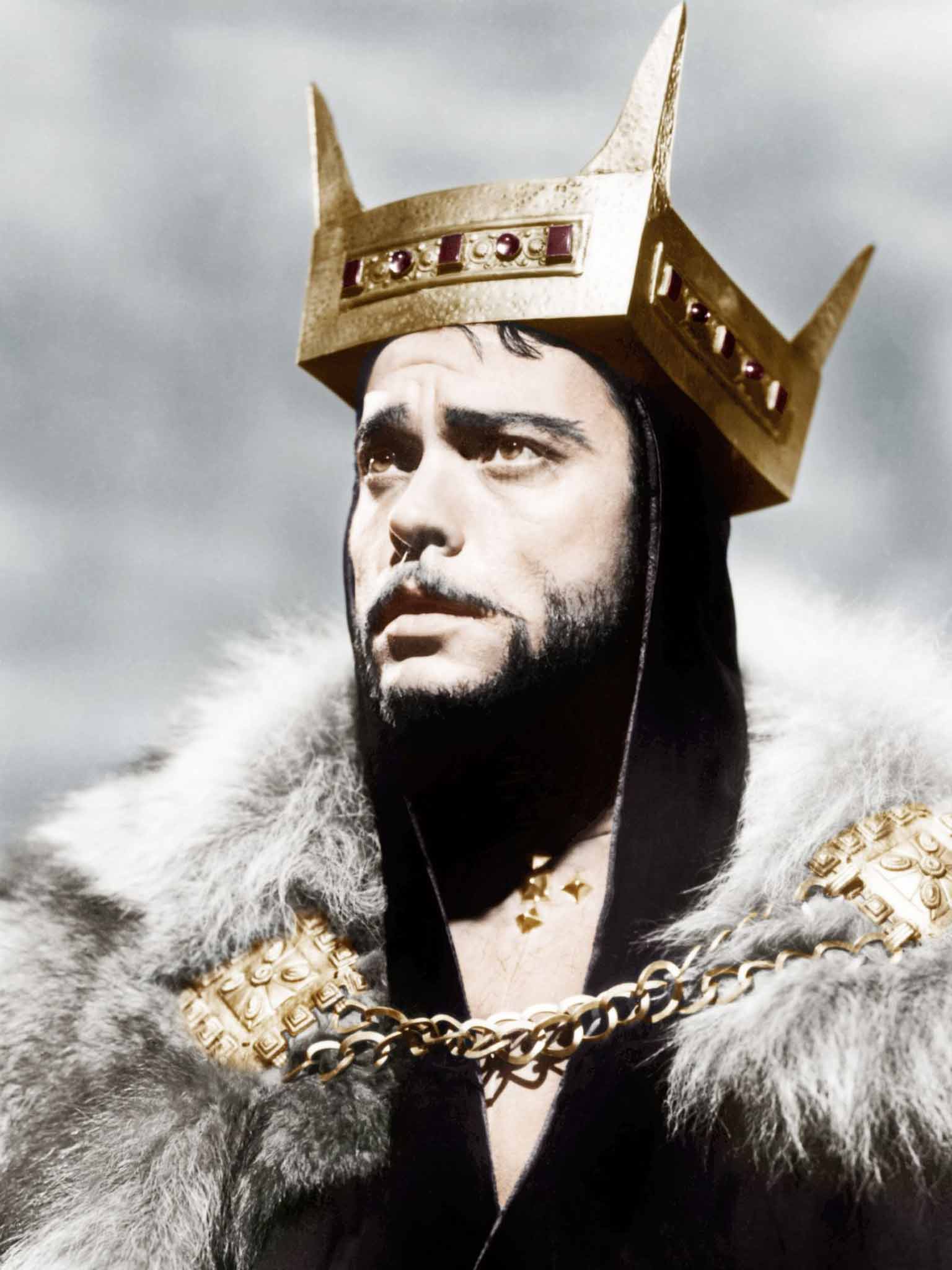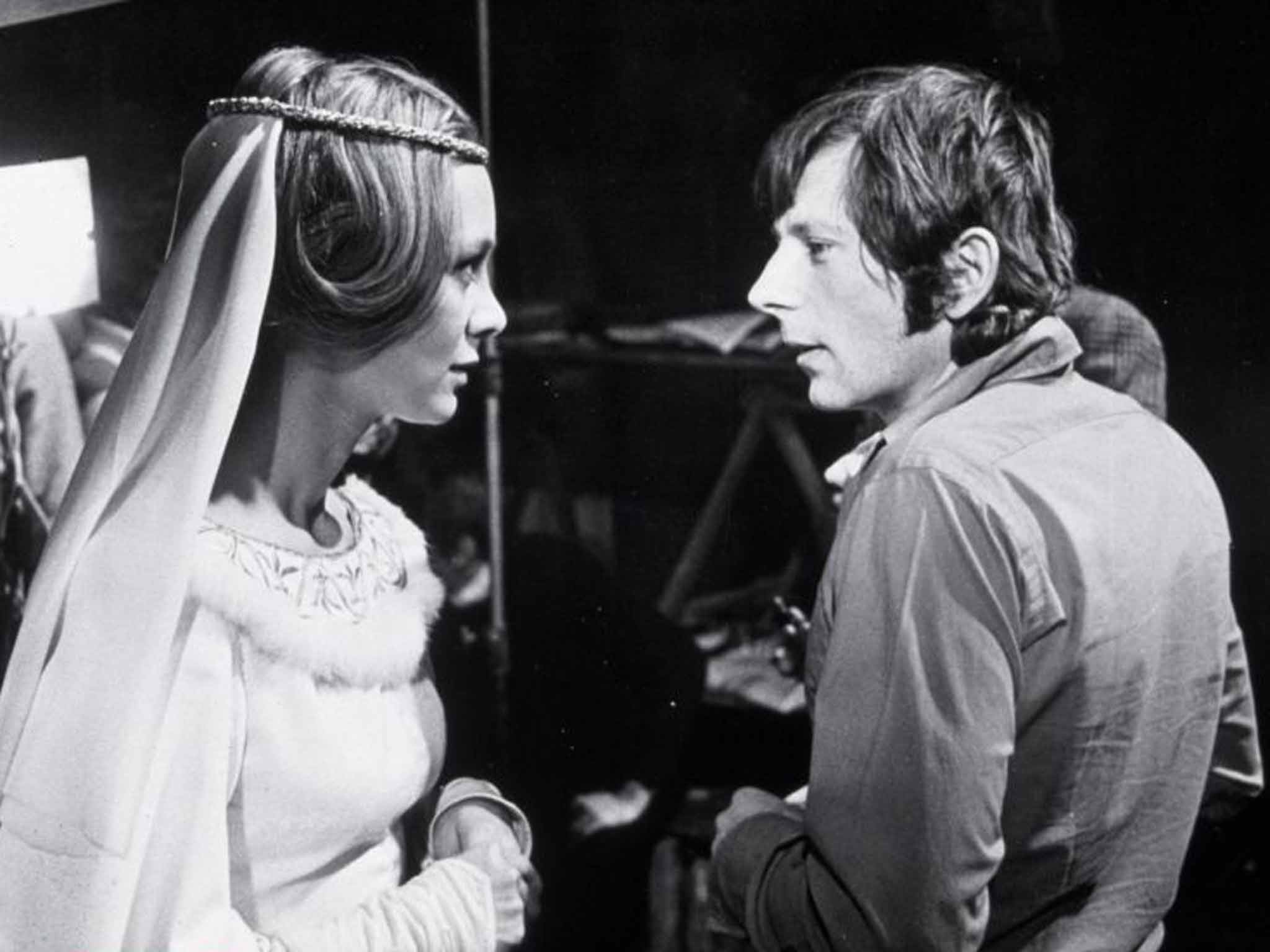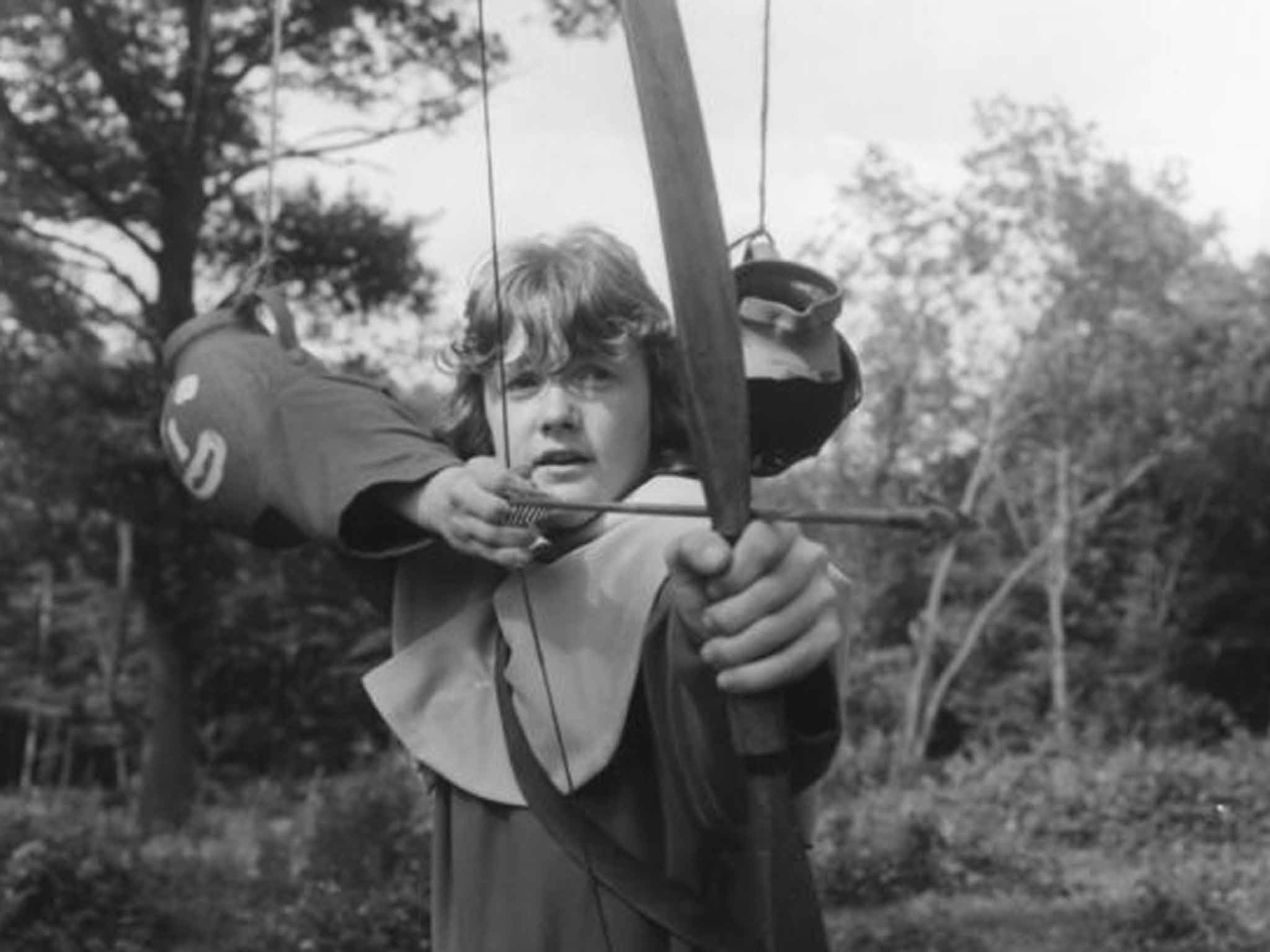Michael Fassbender in 'Macbeth': The Scottish play on film, from Welles to Cheggers
It earned Orson Welles a critical roasting, lost money for Roman Polanski, and gave Keith Chegwin a Shakespearean cameo. Macbeth on screen has had its share of failures and oddities. Can the new Michael Fassbender version break the curse?

Your support helps us to tell the story
From reproductive rights to climate change to Big Tech, The Independent is on the ground when the story is developing. Whether it's investigating the financials of Elon Musk's pro-Trump PAC or producing our latest documentary, 'The A Word', which shines a light on the American women fighting for reproductive rights, we know how important it is to parse out the facts from the messaging.
At such a critical moment in US history, we need reporters on the ground. Your donation allows us to keep sending journalists to speak to both sides of the story.
The Independent is trusted by Americans across the entire political spectrum. And unlike many other quality news outlets, we choose not to lock Americans out of our reporting and analysis with paywalls. We believe quality journalism should be available to everyone, paid for by those who can afford it.
Your support makes all the difference.In Justin Kurzel's new adaptation of Macbeth, which premiered in Cannes and is released in the UK this Autumn, Michael Fassbender plays the lead role in a brooding and aggressive fashion. Grief and violence are the engines of the film.
Macbeth and Lady Macbeth (Marion Cotillard) are first seen placing stones on the eyes of a dead child. Moments later, Macbeth is plunged into the middle of a battle in which extreme slow motion is used to highlight the ferocity of the bloodletting. There is dirge-like music on the soundtrack. The blasted Scottish landscapes seem permanently shrouded in cloud and mist.
A feelgood movie this isn't.
You can see the attraction in adapting the "Scottish play" for the screen. Kurzel's previous film, Snowtown (2011), was about the killers behind the real-life "bodies in the barrels" murders in Adelaide in the 1990s. His Macbeth is a study in homicide too; a film in which the blood flows very freely. It is also a drama about guilt, betrayal, trauma and self-loathing.

Fassbender and Cotillard mutter their soliloquies in remorseful fashion, as if by talking to themselves they hope to justify their own monstrous behaviour. There is precious little humour. The drunken porter has been cut out. The closest we get to a joke is when Macbeth and his wife, busy plotting the murder of King Duncan, have sex while talking about "screwing" their courage to the sticking point.This is a straight-up version of Shakespeare's play. Kurzel hasn't tried to graft a radical new interpretation on to Macbeth or to relocate the action or even to simplify the verse. He is simply tapping the darkness already there in the text. He uses continual fire-lit close-ups as he encourages Fassbender and Cotillard to play Macbeth and wife with a method-style intensity that wouldn't be possible on stage.
Kurzel's film is only the latest in an incredibly long line of screen versions of Macbeth. Not all of them have embraced the darkness.
Fans of British sitcom will enjoy June Whitfield as a roller-skating Lady Macbeth in a sketch from Here We Go, an ITV variety show in 1955. There was a low budget British-American gangster film called Joe MacBeth (1955), in which the hustler hero (Paul Douglas) does away with "the Duke", the head of the mob. As The New York Times noted of the film, which co-starred Carry On's Sid James, the film-makers did a decent job but "overlooked one little matter: the sweep and mightiness of Shakespeare's play reside in the high position of the characters and in the eloquence of the words. A plot of rather routine proportions is simply routine when the characters are thugs and the words are such things as, 'All you have to do is put the finger on Banky' or 'I don't want that hag around here!'"
There have been reworkings of Macbeth set on council estates (Penny Woolcock's ingenious 1997 BBC drama Macbeth on the Estate) and Samurai versions of the play (Akira Kurosawa's 1957 film Throne of Blood). Macbeth was brought to the screen several times in the silent era and has continued to spawn film and TV adaptations ever since, including an animated version.

However, very few of these Macbeths have been successful in either commercial or critical terms. Orson Welles received some of the worst reviews of his career for his 1948 film of Macbeth. The critics didn't cut him any slack for the fact that he was working on a tiny budget. They ridiculed his Scottish accent as Macbeth and gave him no credit for his extraordinary visual inventiveness.
"It was a big critical failure, biggest critical failure I ever had," Welles later recalled, quite a statement considering the drubbings he received for many of his other movies.As Roman Polanski pointed out in his autobiography: "If Macbeth has always been surrounded by a host of theatrical superstitions, film producers tend to wince at the very sound of Shakespeare's name."

Watch Apple TV+ free for 7 days
New subscribers only. £8.99/mo. after free trial. Plan auto-renews until cancelled

Watch Apple TV+ free for 7 days
New subscribers only. £8.99/mo. after free trial. Plan auto-renews until cancelled
Polanski's 1971 Macbeth, backed by Playboy's Hugh Hefner and starring Jon Finch and Francesca Annis, lost money but still ranks as one of the best of the big screen adaptations of the "Scottish play". It is also a source of enduring fascination for pop culture trivia, not least because of the performance from a youthful Keith Chegwin, long before Cheggers Plays Pop, as Banquo's shaggy-haired son, Fleance.
The press speculated about why Polanski had chosen to make such a bloody film so soon after his wife Sharon Tate's murder by members of Charles Manson's "family" in 1969. The Polish director furiously denied that he had used the film for cathartic purposes. "After the Manson murders it was clear that whatever kind of film I'd come out with next would have been treated the same way. If I'd made a comedy the charge would have been one of callousness," he later wrote.
However, he acknowledged that he did draw on his childhood memory of a Nazi officer searching his family's room in the Krakow ghetto for the chilling scene in which Macbeth's killers burst in on Lady Macduff and her young son.
Polanski's demons notwithstanding, Chegwin paints a cheery picture of life on set during production. Then a young teenager, he lied to the director that he knew how to ride in order to win the role.

"I didn't even have to act. The problem was the bloody horse riding," Chegwin recalls. Not even a crash course at the Knightsbridge Riding Club fully equipped him for his role. He was hired for six weeks, but spent six months on the production at the princely rate of £100 a week. Martin Shaw, who was cast as his father Banquo, explained to him how to use a bow and arrow. Polanski, meanwhile, taught him a few words of Polish. They spent three weeks shooting the fight scene in which Fleance flees Macbeth's henchmen – and then Polanski made them do it all over again because a cameraman had been using the wrong filter.
"I fell off the horse and hurt my leg," Chegwin recalls. "He [Polanski] said 'you get back on that horse now'. I said 'no. I've hurt my leg.' He said 'I can fire you from this film.' I said, 'no, you can't. I've shot all the other sequences.'" Polanski laughed and kept him on.
Chegwin tells a story about going to see a revival of the film at the Odeon Swiss Cottage. His name came up in big letters on the opening credits and someone in the audience shouted out: "Not bloody Cheggers!"
There are few moments of Cheggers-like levity in Justin Kurzel's new Macbeth. The Australian film-maker has likened his adaptation to a Western. If so, it is a stark and cruel one. The strangest aspect to it is that Fassbender's Macbeth appears a victim in spite of his misdeeds. He begins the film looking haunted. His encounter with the strange women on the heath (thankfully not played as Hallowe'en-style hags) only heightens his anxiety. It is as if he knows he is damned right from the outset. That is one reason why this blood-steeped Macbeth, like so many of its predecessors, may struggle to make much progress at the box office.
'Macbeth' is released on 2 October. Orson Welles's 'Macbeth' is screening at BFI Southbank, London on 15 & 18 July as part of the BFI's Orson Welles: The Great Disruptor retrospective (www.bfi.org.uk)
Join our commenting forum
Join thought-provoking conversations, follow other Independent readers and see their replies
Comments